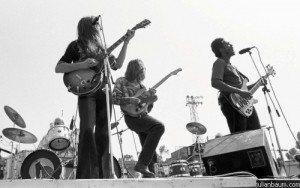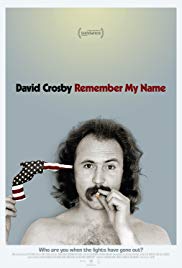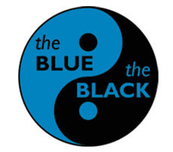Doobie Brothers – Rock Magazine 1973
Cameron has a quick chat with The Doobie Brothers for this 1973 interview with Rock Magazine.
Nice Guys Don’t Win, But Doobies Do
Nine months ago, in a Warner/Reprise mail-out by the name of The Circular, a contest was declared. The Doobie Brothers, owners of an obscure first album, were about to finish a second and needed title for the LP. Readers were encouraged to send in their suggestions, and the winner, besides receiving credit for the verbal creation, would have his picture plastered on the album’s cover.
“We had a tough time deciding what the name of the album should be,” Tiran Porter, Doobie’s bassist reminisces. “That particular contest for the name never worked out. We had a lot of “Doobie Doo” and some clown even thought up “Dickey Doo and the Don’ts.” Needless to say, there was no winner. The album was simply called Toulouse Street after one of the album’s cuts.
The Doobie Brothers began to fall together several years ago amid the rise of psychedelia and the San Francisco “scene.” Tom Johnston, now lead-singer and lead-guitarist, had done grueling stints with soul bands, Mexican wedding bands, rhythm and blues bands and the solo-acoustic route before being introduced through Moby Grape star Skip Spence to drummer “Little John” Hartman and bassist Gregg Murph. After playing together for a fairly short period of time, the three decided to call themselves the Doobie Brothers. Initially it was a hard rock band, “but later,” Johnston continues, “we added horns and did a gospel-rock thing.”
At that point, Murph called it quits and was replaced by Dave Shogren. Then, following his own dues-paying days, Pat Simmons joined the band as a guitarist-vocalist.
“I played everywhere that anybody would allow me to,” Simmons explains. “Bars, coffee houses, living-rooms, bathrooms, all over. Sometimes with other people, most of the time by myself . . . ” The tall, slender rhythm-guitarist fails to go into tremendous detail about his initial linking with the other. Instead, he skips ahead and finishes awkwardly, ” . . . until I met up with the Doobie Brothers.”
After that, the first album was recorded . . . obtaining the aforementioned obscurity upon the day of its release. The period of time between Doobie Brothers and Toulouse Street was hard and remains a topic that brings a bad taste to the mouth of most of the members. The word was put out that the Doobies had been the house band for the Hell’s Angels, and the black leathered attire of the band on the cover of that debut album did little to refute the image.
“Let’s put it this way,” Hartman begins, “promotion, publicity, hype and biographies are things you have to have. They don’t know who we are . . . we talk to some broad who writes up a whole scam bio . . . right on down to the dogs. You get that first bio? You read it? ”
“No.”
“Ho-ho. It was the name of all the dogs we have . . . anyway, at the time we were playing clubs and we weren’t liking it too much. But what do we tell the chick writing a bio? That we’re stuck playing bars?”
They were stuck playing bars . . . “which was a little funky,” according to Johnston. “A lot of stabbings, shootings and kicking butts in general. Sometimes involving us. I really didn’t much care for it. Working five hours for five bucks? I mean that’s shitty.”
After the addition of Tiran Porter (replacing Shogren) and drummer Michael “I have nothing more to say” Hossack to augment Hartman, it was into the studio to record Toulouse Street and ultimately the hit single “Listen to the Music.”
Producer Ted Templeman, also involved with Captain Beefheart and Van Morrison, is a strong influence on the group in the studio. The inclusion of “Cottonmouth” was due to the suggestion of Templeman, who brought Seals and Crofts’ Down Home album into the studio and played the original cut for the band. The Doobies, who had never heard the song before, took a stab at it a few minutes later. Templeman recorded them and put the tune on the lp. “He does things on a tweke,” says Porter.
Ironically, it was also Templeman who almost prevented the release of “Listen to the Music” as a 45. “When Tom originally wrote the song, we all thought it would be a good single,” Porter continues. “Templeman said no. We recorded it as a regular album track, then made him listen again. ‘Maybe,’ he said. Then he took it to the higher-ups at Warner Brothers and they said yes.”
“Listen to the Music” is the kind of break the most bands spent their entire career aspiring towards. For the Doobie Brothers it was the difference between attention and oblivion. Translated into their own terms, it meant the difference between bars and concert halls.
“As soon as we started playing concerts, we knew we were never meant for anything else,” Johnston beams. The nationwide tour with T. Rex gained a lot of favorable reaction from audience and press alike, and the Doobie Brothers appear to be finally and forever released from the depressing confines of rundown Berkeley scag-dens and dives.
Oddly enough, their T. Rex tour was not, according to Johnston, a result of the single success. “Listen to the Music” wasn’t doing that much when we first got the tour,” he explains. “It was just starting. I think what happened was Dan Winer, who’s with I.F.A. got the tour as a possibility. He knew Marc Bolan was looking for an American group to go on tour with him rather than an English group. We had just signed with I.F.A. and he was throwing a lot of stuff our way, so we gave us that tour. Warner Brothers sent Marc an album and he dug it and liked the group. I don’t think it had much to do with the single.”
“Am I anxious to get back to playing bars and clubs again?” John Hartman stalls. “Let me put it this way . . . if you were driving a Volkswagen and you really wanted to be driving a Cadillac, and you finally got that Cadillac, would you want to go back to the VW? I mean who in their right mind would want to go back to a bar. Jesus . . . drunks and idiots, bad pay, no pay . . .”
It could have happened to a nicer guy, though. Hartman, self-professed leader of the group and owner of the title “the white Buddy Miles,” is fascinated with his own menacing physique. He uses it to his advantage, too. Or let’s put it this way . . . he tries.
The self-conscious reporter shuffles into Hartman’s hotel room, sits down and sets the microphone to his cassette recorder on the edge of an ash tray. With the tape whirling and microphone capturing the reporter’s awkward silence, Hartman snickers.
“Ask me a question you’d ask Rod Stewart,” he taunts, loving every minute of it.
The reporter laughs nervously for a moment, then responds in a flawless deadpan with new-found courage. “Are you upset with the release of the Python Lee Jackson tapes?”
Well, you know what they say. Nice guys don’t win ballgames . . . or gold records.
Courtesy of Rock magazine – Cameron Crowe – March 13, 1973




 >
>

